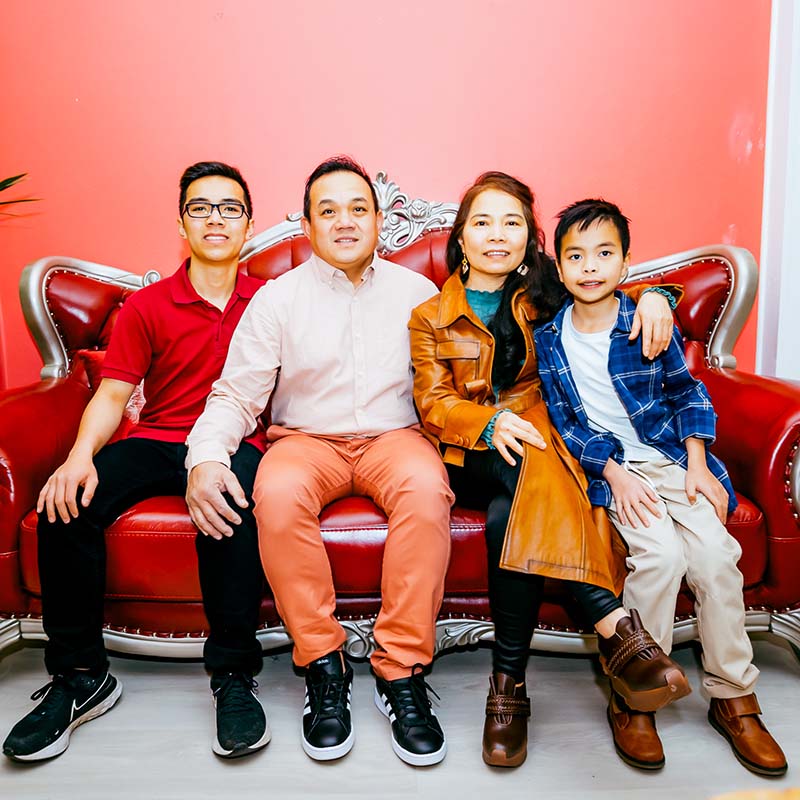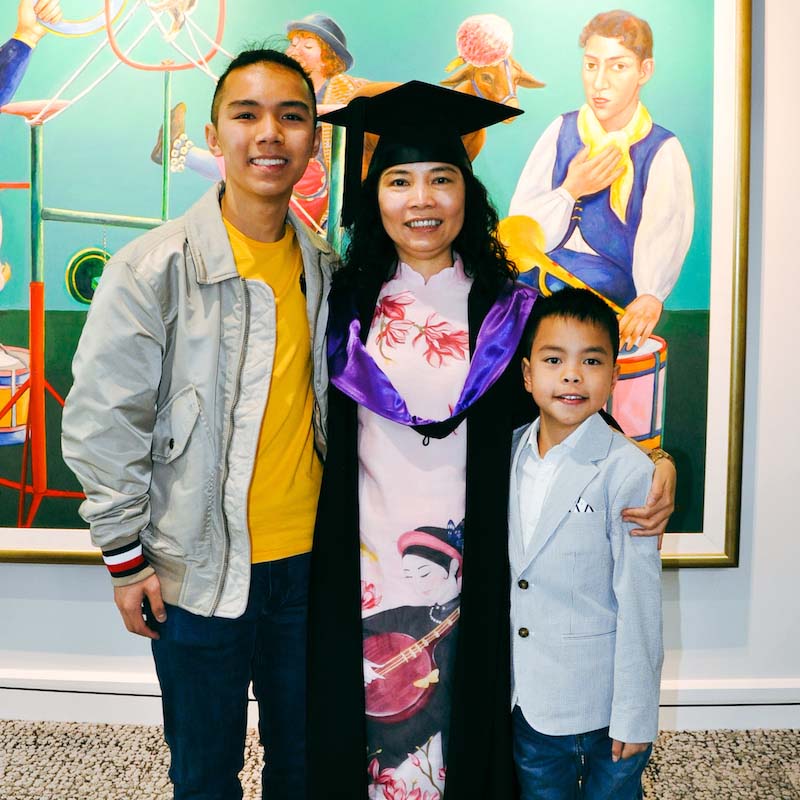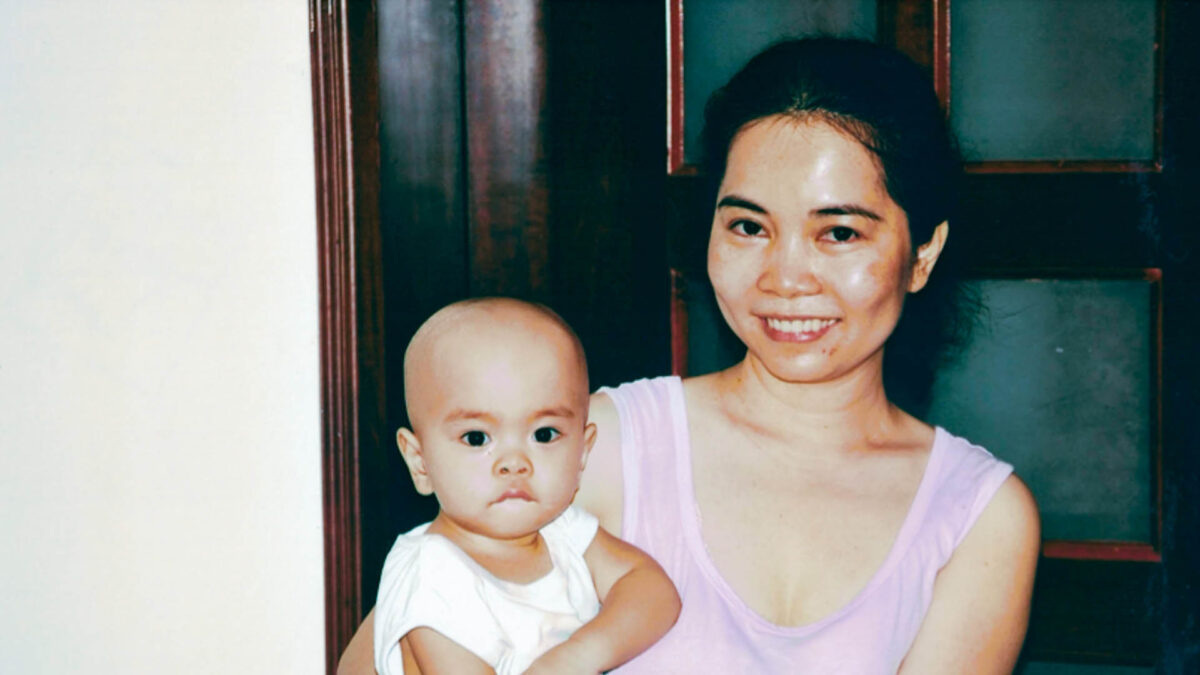Raising children is hard enough, but throw a cancer diagnosis into the mix and the challenge is taken to a whole new level.
When my son was a newborn, I found a lump in my breast. At first, with all the changes that take place in the body during breastfeeding, the doctors assured me the lump was quite normal.
Not long after, I found out they were wrong: I had late-stage breast cancer. In the space of just a single doctor’s visit, it felt like I had lost everything. At the time, one of my sons was just a newborn and my other was nine years old.
Including children in the cancer battle
With an estimated 151,000 new cases of cancer being diagnosed in Australia last year, sadly, most of us will be affected—either directly or indirectly—by cancer at some point in our lives. A diagnosis has a knock-on effect, changing the lives of not only the diagnosed, but of partners, family and friends. Many cancer sufferers and their loved ones feel disempowered, confused and afraid of what lies ahead.
In the video below, a breast surgeon discusses the first signs of breast cancer and what to look out for.
For me, navigating cancer while being a mum was a rocky but often rewarding journey. Firstly, children are more perceptive than we often give them credit for. For many people, talking to kids about cancer can feel overwhelming—so much so that they’d rather avoid the topic entirely or give them an overly watered-down version of the truth.
However, for me, talking about cancer was just a normal part of life. I found it important that my children were included in every step and never felt like cancer was a topic to avoid. I talk to my kids daily and let them know all the risk factors for cancer, along with things they can do to reduce their risk. Today, they’ve also seen many of my cancer patients recover and live healthy lives. As a result, my children can talk about cancer like they would any other disease.
I’ve explained to them about cancer cells and the importance of loving their cells. We often think of our mind and body as separate, but our mental health and physical health are interconnected. Physical health problems significantly increase our risk of developing mental health problems, and vice versa.
What I learned on my cancer journey

Although it’s easy to talk to my sons now, at the start of my own cancer journey, things weren’t always so straightforward.
I’d already had a difficult time with my newborn son. Thick green meconium present in my baby’s amniotic fluid meant I’d needed an emergency caesarean, and my boy was born small and premature. He stayed in a special nursery unit in the hospital for two weeks after being born.
After getting him safely out of the hospital, my world turned upside down yet again with my cancer diagnosis. Terrifying thoughts plagued me endlessly.
How could I leave my children so soon?
What would happen to my family, my job, my business, and my dreams?
The first time around, I was lucky. I was given the all-clear a few years later and started moving on with my life. I moved to Australia to start a new business and started studying real estate and construction through TAFE.
Not long after moving however, I was diagnosed again, this time at the first stage of thyroid and uterus cancer. In order to tackle the disease head-on, I wanted to learn as much as possible about it. I found a naturopath and learned more about nutritional medicine. I began a degree in nutritional medicine and Western herbal medicine, as well as oncology nutrition with the Oncology Nutrition Institute in the US.
As of today, I have over 26 degrees, diplomas and certificates obtained in Australia, Netherlands, UK, USA and Vietnam, including a Bachelor’s degree in nutritional medicine and a Bachelor of Western herbal medicine.
Tackling cancer holistically

Through my studies, I discovered nutrition, nutritional support and lifestyle adjustments can make an enormous difference when battling cancer. Research shows that eating well can benefit people before, during and after cancer treatment. It improves your quality of life by giving you more energy, keeping your muscles strong, helping you stay a healthy weight and boosting your mood.
Chemotherapy, radiation therapy or surgery are all excellent treatment options, but can often leave people with a distressing array of negative side effects including fatigue, nausea and pain. After consulting with my doctor, I stopped eating red meat, increased my vegetables, ate more fruit, drank more water and meditated every day. My sleep got better and my energy levels increased.
My own personal experience, coupled with my philosophy of holistic care in cancer support and recovery became the foundations for the Hearty Center, a retreat which provides cancer patients with a combination of oncology nutrition, meditation, spectrophotometry, massage and herbal medicine.
A strong social support network can be critical to help through the stress of tough times, especially when you have children to look after. It’s why I set up Hearty Center, for it to be a haven for cancer patients to share inspiration, experiences and practise joyfulness daily.
Today, I’m lucky enough to be currently cancer-free, but I am careful to continue to check my health every six months or so, including my organs and my thyroid. As things stand today, everything is in a normal range.
By addressing more than the physical manifestation of cancer, we can help to deal with the stress and emotional devastation the disease leaves in its wake. Meditation, mindfulness, nutrition and natural therapies help not only heal the body, but the mind and spirit. It’s a lesson I teach to my children—and myself—every single day.
How helpful was this article?
Click on a star to rate it!
5 / 5. 2
Be the first to rate this post!
Thu Le
Related posts
Subscribe
Receive personalised articles from experts and wellness inspiration weekly!

